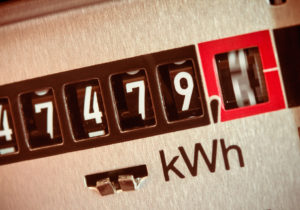
There are basically two ways to get cryptocurrencies, which are continuously gaining more popularity today: you may either buy them or produce them through so-called mining. This is nothing but performing sophisticated cryptographic computations which validate subsequent blocks using blockchain technology. Cryptocoins constitute payment for the performed work. With time this requires more and more computing power and, consequently, more electrical power.
Still, several years ago an ordinary home desktop computer would suffice to effectively handle the mining of Bitcoins, for instance, but as the technology became more and more popular and cryptocurrencies were more widely accepted as means of payment, the requirements have grown very fast. Now gigantic computing power is required for mining and various companies appear which specialise in the production and leasing of specialised high-performance servers.
In terms of technology, the process of mining virtual currencies quite resembles the SETI project, within which computer users offered some of their computing power to achieve a common goal. SETI involved search for extra-terrestrial intelligence through analysing data recorded by radio telescopes[1]. Blockchain uses the offered computing power to maintain the distributed database and, first of all, to validate transaction and settlement data stored within that database.
What is Bitcoin?
Cryptocurrency is an unofficial means of payment, not backed by any central bank of any state or any similar authority. Thus, it may not be compared to any local currencies as, for instance, Dutki coins, issued by the municipality of a Polish tourist town, Zakopane, which are a tourist gadget rather than a real payment currency.
In the case of cryptocurrencies, their credibility comes from the blockchain technology, which guarantees that information about each single transaction is recorded in a distributed manner within the network and a single unit of the currency may not be duplicated or issued twice. The price is the result of the currency’s popularity among its users. The most expensive and the most popular is Bitcoin, with an exchange rate (as of 5 Sep. 2018) of 25,606[2] PLN per unit. The currency may be split into low denominations, which allows making small amount transactions. However, the Bitcoin algorithm provides for generating only a limited number of “coins” and when their number in circulation increases, the effort required for mining subsequent coins grows rapidly. This prevents “inflation”, or depreciation.
Optimisation first
According to Arvind Narayanan, a computer scientist and a professor at Princeton University, world’s mining of Bitcoins requires at least five gigawatts of electrical power[3]. For comparison – the total capacity of Warsaw’s Siekierki heat and power station is 622 megawatts, which means that eight such facilities are required to produce electrical power sufficient for the world’s mining of Bitcoins today[4]. To use other comparisons – Bitcoin mining consumes more electricity than the entire New York state or twice as much as entire Ireland[5]. And a single Bitcoin transaction uses energy amount that could power up an average house for a week[6].
Due to the growing energy demand, Bitcoin mines are more and more often seeking ways to optimise their expenditures. One of them is investments in local sources of renewable energy. This is particularly noticeable in Canada, Paraguay and Iceland[7]. The most popular solutions which power up server farms are solar panels and wind turbines.
[1] https://en.wikipedia.org/wiki/Search_for_extraterrestrial_intelligence
[2] https://bitbay.net/pl/kurs-walut/kurs-bitcoin-pln
[3] https://www.energy.senate.gov/public/index.cfm/files/serve?File_id=8A1CECD1-157C-45D4-A1AB-B894E913737D
[4] https://en.wikipedia.org/wiki/Siekierki_Power_Station
[5] https://theoutline.com/post/4561/bitcoin-is-consuming-as-much-energy-as-the-country-of-ireland?zd=1&zi=6vjmh5wm
[6] https://motherboard.vice.com/en_us/article/ywbbpm/bitcoin-mining-electricity-consumption-ethereum-energy-climate-change
[7] https://bitcoinist.com/bitcoin-miners-cutting-costs-by-going-green/




